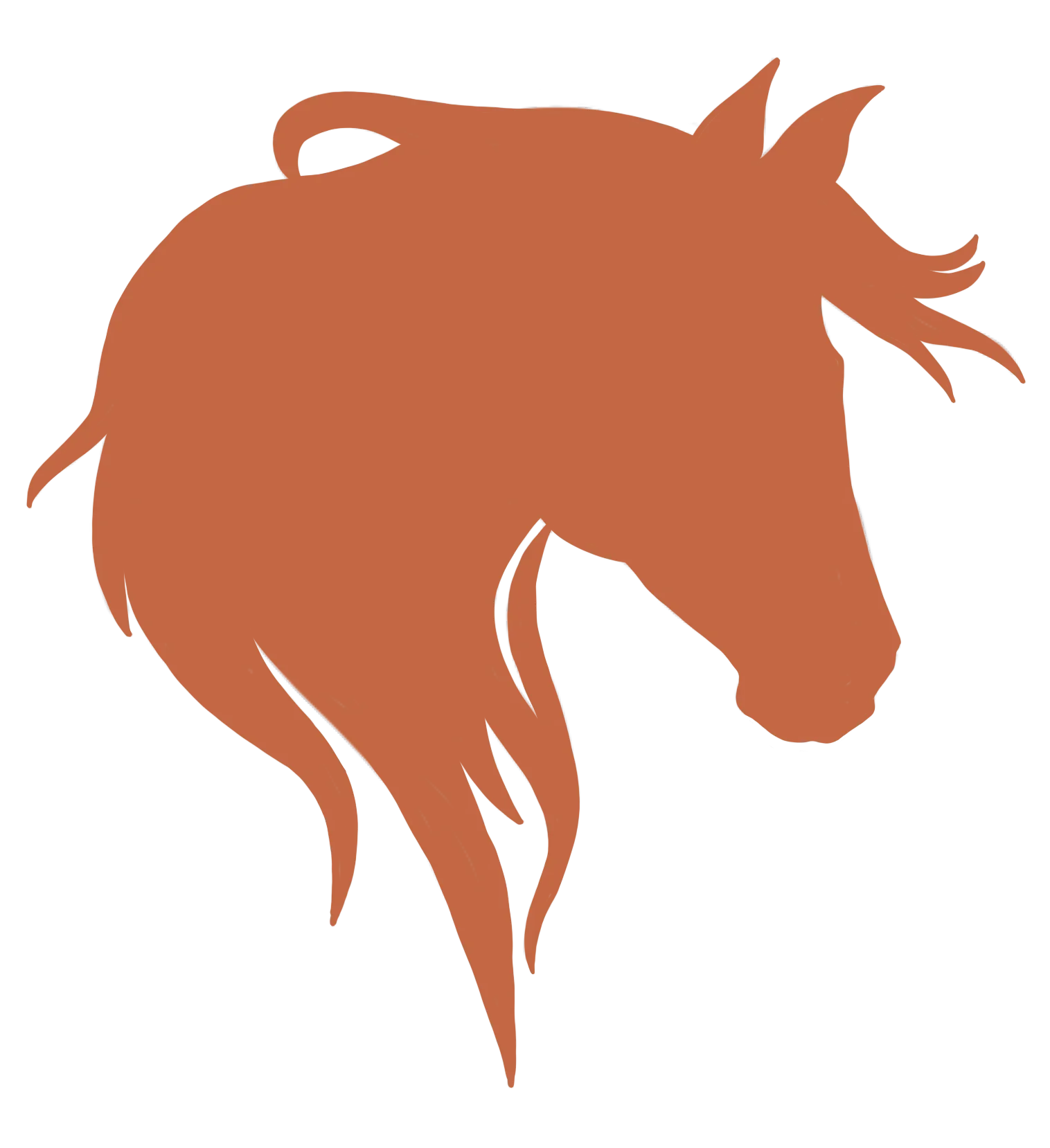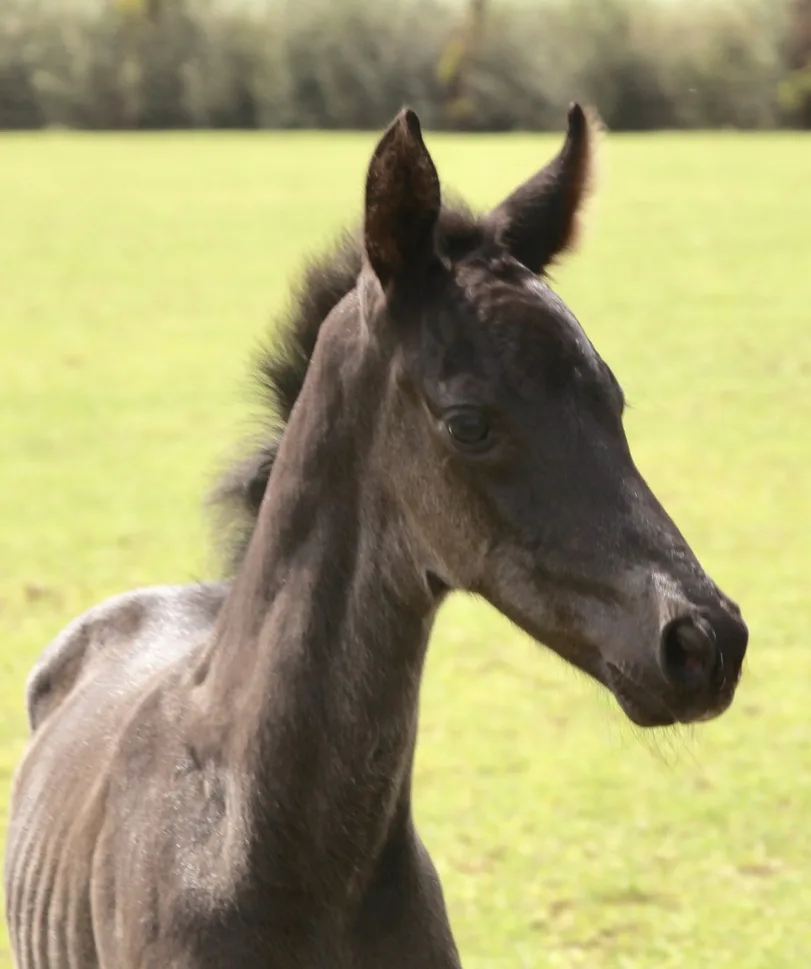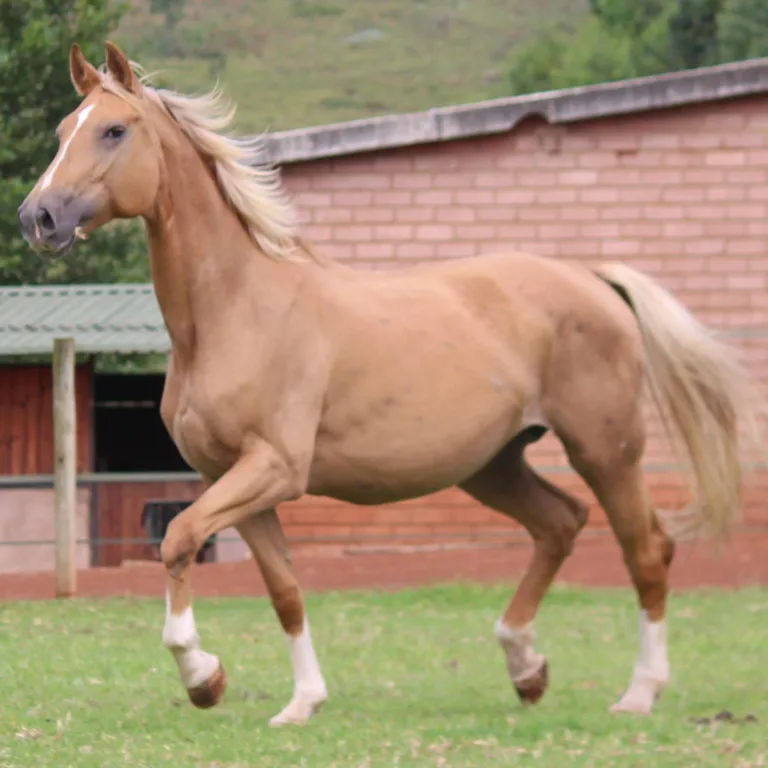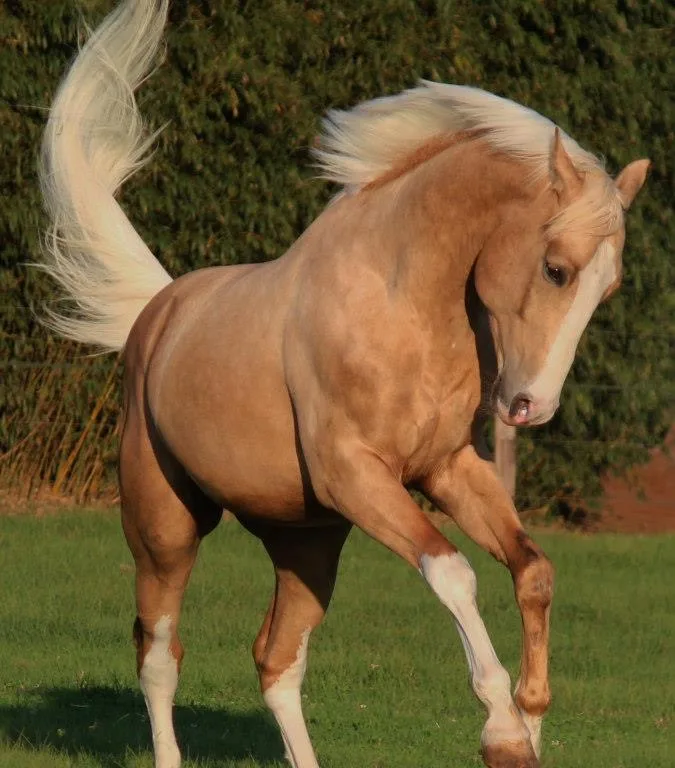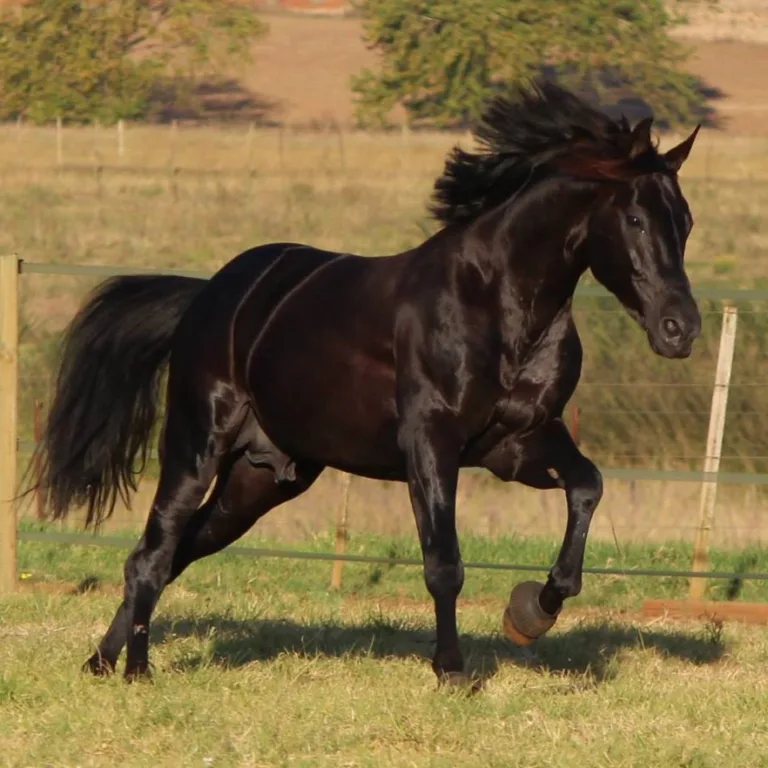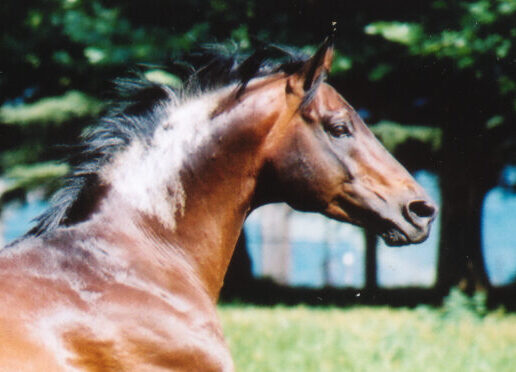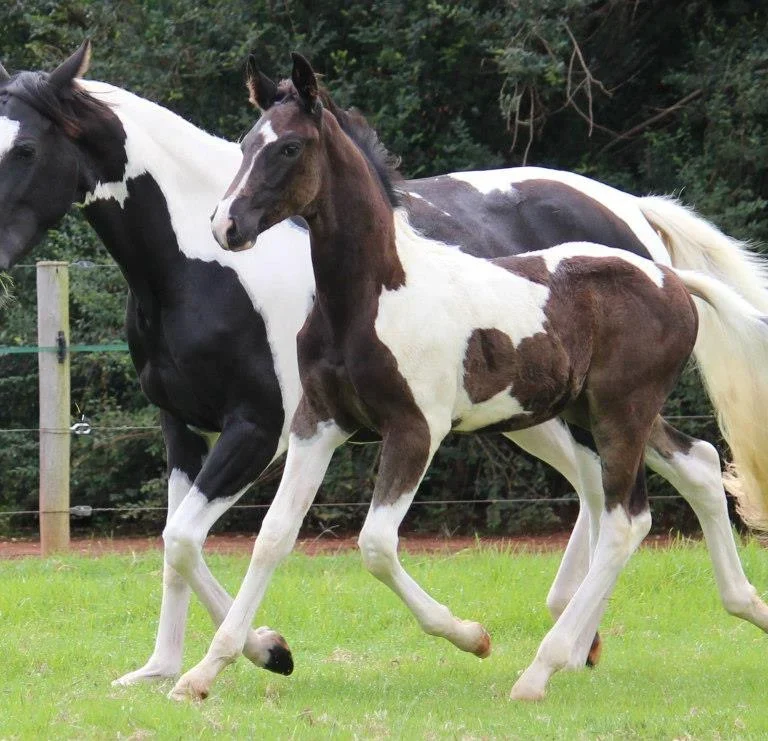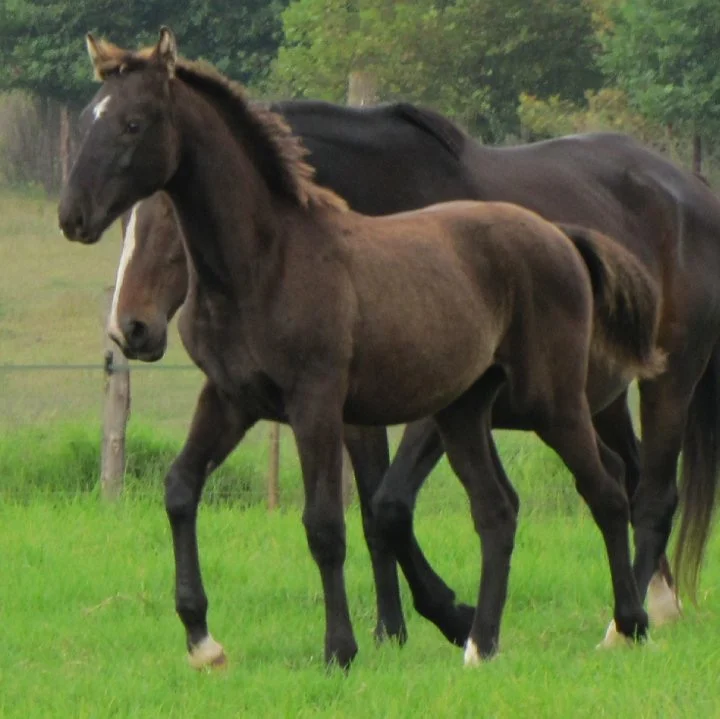Foal Care 101: Ensuring a Happy and Healthy Start to Equine Life
Welcoming a new foal into the world is a momentous occasion that brings both joy and challenges for horse enthusiasts and breeders alike. The thrill of witnessing the birth and the precious moments that follow creates a special bond between humans and these special animals. However, it’s essential to recognize that the initial weeks of a foal’s life are critical in shaping its overall health, well-being, and future development. In this blog, we’ll explore the unique journey of caring for a newborn foal and discuss the significance of the first few weeks in laying the foundation for a happy and thriving equine companion.
the joy and challenges of welcoming a new foal
The sight of a curious and wobbly-legged foal exploring its surroundings, nuzzling its mother, and taking its first hesitant steps is a testament to the beauty of nature. The joy that comes with witnessing these precious moments creates lasting memories for horse owners.
However, this joy is accompanied by challenges, especially for first-time breeders or those less experienced in foal care. The unpredictable nature of foaling can bring about unexpected complications, necessitating quick thinking and action. Proper preparation, knowledge, and a well-equipped foaling kit are essential to navigate these challenges successfully.
Importance of the first few weeks in the foal’s development
The first few weeks of a foal’s life play a crucial role in determining its overall health and future temperament. During this time, the foal undergoes rapid physical and psychological development, making it particularly vulnerable yet receptive to positive influences. Key aspects of this developmental stage include:
- Imprinting and Bonding: Foals are highly impressionable in their early days. Positive interactions with humans during this period contribute to the foal’s socialization and create a foundation for a trusting relationship.
- Nutrition and Growth: The nutritional intake during the initial weeks is paramount for the foal’s growth and development. Adequate colostrum intake, proper feeding of the mare, and the introduction of a balanced diet for the foal are essential for optimal growth.
- Immune System Development: The foal’s immune system is still developing, making them susceptible to infections. Proper vaccination protocols and hygiene practices are crucial in safeguarding their health.
- Physical Coordination: The foal’s first attempts at standing and walking are not only adorable but also crucial for developing coordination and muscle strength. A supportive and safe environment is essential to encourage these physical milestones.
Understanding and addressing these developmental aspects in the initial weeks are instrumental in ensuring a strong, healthy start for the foal. As we delve into the various facets of foal care, it’s important to appreciate the significance of this early period in laying the groundwork for a lifetime of well-being and companionship.
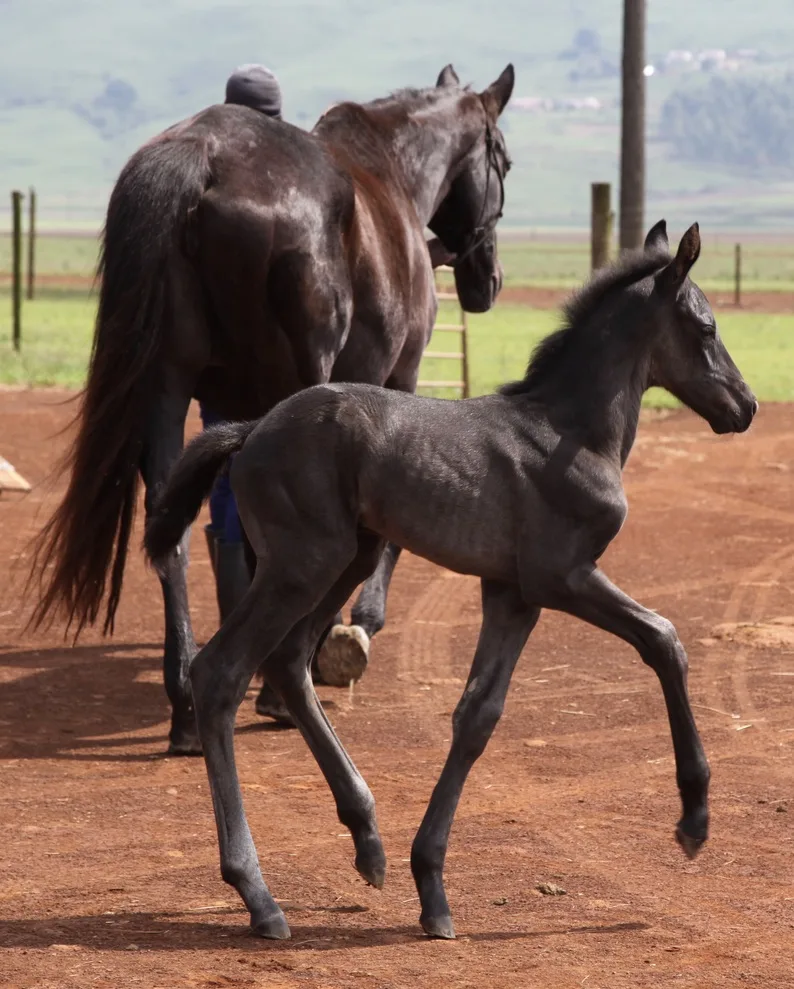
Preparing for Arrival
Welcoming a new foal into the world involves meticulous preparation to ensure a safe and comfortable environment for both the mare and the newborn. Proper planning not only contributes to a smooth foaling process but also sets the stage for the well-being of the foal in its crucial first moments. Let’s delve into the key aspects of preparing for the foal’s arrival:
Creating a safe and comfortable foaling environment
- Choosing a suitable foaling area:
- Select a quiet, well-ventilated, and easily accessible location for the foaling area. A dedicated foaling stall in a clean barn is often ideal.
- Ensure that the area is free from potential hazards, such as sharp objects, loose wires, or low-hanging equipment.
- Adequate lighting is essential for observation without disturbing the mare, especially during nighttime foalings.
- Providing proper bedding and sanitation:
- Use clean, dust-free straw or shavings for bedding. Avoid using materials that may cause respiratory issues for the foal.
- Keep the bedding clean and dry to prevent infections. Regularly replace soiled bedding to maintain a hygienic environment.
- Provide a designated area for the mare to urinate and defecate to help keep the foaling area cleaner.
Assembling a foaling kit
- Essential supplies for foaling:
- Clean towels and blankets: Use these to dry the foal quickly after birth, helping prevent hypothermia.
- Sterile gloves and lubricant: Essential for assisting the mare if necessary.
- Umbilical disinfectant solution: To clean and disinfect the foal’s umbilical stump.
- Colostrum replacement: In case the mare is unable to produce enough colostrum, having a replacement on hand is crucial for the foal’s immunity.
- Foal weight tape or scale: Important for monitoring the foal’s growth and ensuring proper feeding amounts.
- Clean scissors or scalpel: For cutting the umbilical cord if it doesn’t break naturally.
- Emergency contact information for veterinary assistance:
- Display prominently the contact information for the veterinarian who will be assisting with the foaling.
- Have a backup plan in case the primary veterinarian is unavailable and know the location and contact details of the nearest equine emergency clinic.
- Understand the signs that warrant immediate veterinary attention, such as prolonged labor, dystocia, or signs of distress in the foal.
Having a well-prepared foaling area and a comprehensive foaling kit in place ensures that you are ready to handle various situations that may arise during the birthing process. These proactive measures contribute to a positive and safe start for both the mare and the foal, setting the stage for a healthy beginning to their journey together.

The Foaling Process
As the anticipated moment of foaling approaches, being attentive to the signs and being prepared for potential complications are essential for a smooth and successful delivery. Understanding both the behavioral and physical indicators will empower horse owners to provide the necessary support when needed.
Recognizing signs of impending foaling
- Behavioral changes in the mare:
- Restlessness: The mare may become restless and may repeatedly lie down and get up.
- Isolation: Mares often seek solitude or show signs of wanting to be alone as they prepare to foal.
- Nesting behavior: Mares might paw at the ground, create a nest with straw or bedding, or repeatedly look at their flanks.
- Physical signs of approaching labor:
- Enlargement of the udder: The mare’s udder will become distended and may drip colostrum. Monitoring udder development helps predict the proximity of foaling.
- Relaxation of the pelvic ligaments: A softening and relaxation of the ligaments around the tailhead and croup area.
- Vulvar changes: Swelling and elongation of the vulva may occur, and a wax-like secretion might be visible on the teats.
Assisting the foaling process if necessary
- Knowing when to intervene:
- Prolonged labor: If the mare has been in labor for an extended period without progress, intervention may be necessary. Consult with a veterinarian to determine the appropriate course of action.
- Dystocia: Difficulties during labor, known as dystocia, may arise due to the foal’s malposition. Signs include the appearance of the amniotic sac without subsequent progress or visible front hooves.
- Lack of progress: If the mare seems exhausted and has made little or no progress, assistance may be required.
- Common complications and how to handle them:
- Breech birth: If the foal is presenting hindquarters first, intervention is necessary. Gently reposition the foal, or if unable to do so, seek veterinary assistance immediately.
- Red bag delivery: In some cases, the placenta may detach prematurely, appearing as a red or brown membrane. This is an emergency, and the foal must be delivered promptly.
- Weak or non-breathing foal: If the foal does not start breathing on its own, clear the airways, rub it vigorously with a towel, and, if necessary, administer mouth-to-nose resuscitation.
Being vigilant and responsive during the foaling process is crucial for the safety of both the mare and the foal. Regular monitoring, familiarity with the signs of labor, and a clear understanding of when intervention is necessary will contribute to a successful foaling experience. Always consult with a veterinarian if there are any concerns or uncertainties during the foaling process.
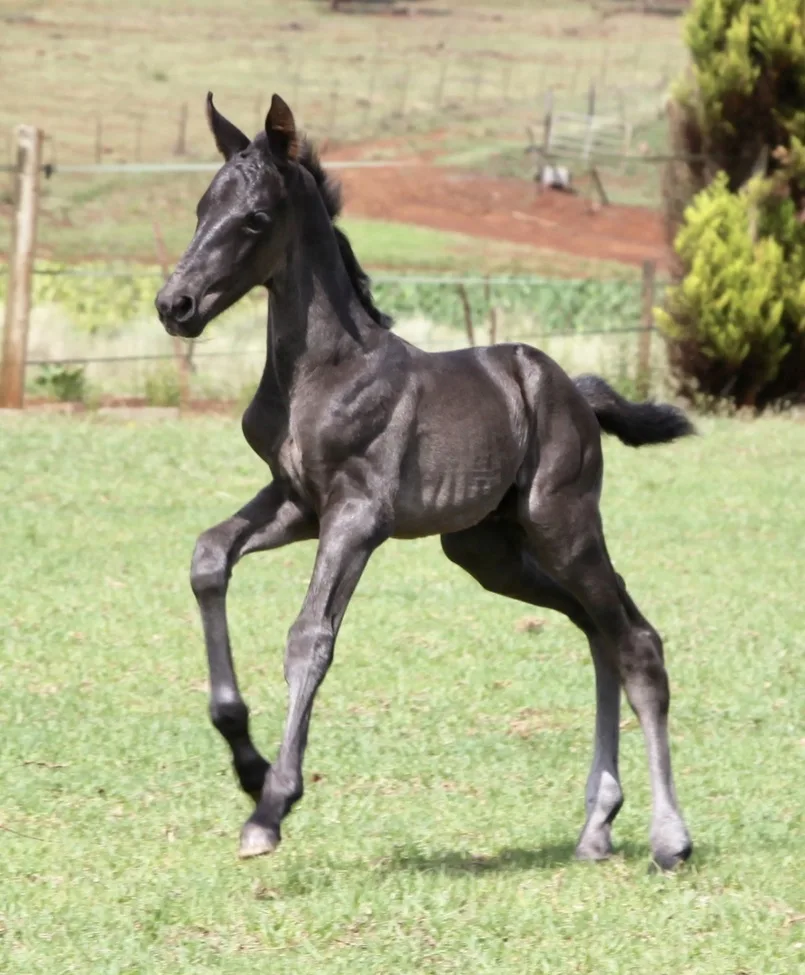
Bonding and Socialization
The bond formed between a mare and her foal during the early weeks of life lays the foundation for a positive and cooperative relationship. Additionally, introducing the foal to human contact during this critical period contributes to its overall socialization and ease of handling. Let’s explore the key aspects of bonding and socialization:
Encouraging bonding between mare and foal
- Importance of early interaction:
- Maternal bonding: Allow the mare and foal to bond naturally immediately after birth. The mare will nuzzle, lick, and vocalize to establish a connection with her foal.
- Nursing: Encourage early nursing, as colostrum provides vital nutrients and antibodies essential for the foal’s health and immunity.
- Observing natural behaviors: Allow the mare and foal to engage in natural behaviors, such as mutual grooming and playing, which strengthen their bond.
- Facilitating natural behaviors:
- Turnout time: Gradually introduce controlled turnout time in a safe paddock, allowing the mare and foal to move freely, graze, and explore together.
- Socializing with other horses: When appropriate, allow the foal to interact with other horses, promoting social skills and herd dynamics.
Introducing the foal to human contact
- Gentle handling techniques:
- Approach with calmness: Approach the foal and mare calmly, speaking softly and avoiding sudden movements. Calm energy is contagious and helps the foal feel secure.
- Gradual touch: Start with gentle touches on the mare while allowing the foal to observe. Slowly extend this interaction to the foal, offering gentle strokes on the neck and back.
- Positive reinforcement: Use positive reinforcement, such as treats or verbal praise, to associate human contact with positive experiences for the foal.
- Building trust and confidence:
- Frequent but short interactions: Keep interactions short but frequent to avoid overwhelming the foal. As trust develops, interactions can be extended.
- Routine care: Incorporate routine care tasks, such as grooming and picking up the hooves, to acclimate the foal to necessary handling.
- Patience and consistency: Patience is key in building trust. Consistent, positive interactions help the foal develop confidence in its human caregivers.
Building a strong bond between the mare, foal, and human caregivers is a gradual process that requires patience and understanding. The early interactions and positive experiences during this period will influence the foal’s behavior and receptiveness to human interaction throughout its life. By encouraging natural behaviors and providing positive reinforcement, horse owners can establish a foundation of trust and cooperation that benefits the foal’s overall well-being.
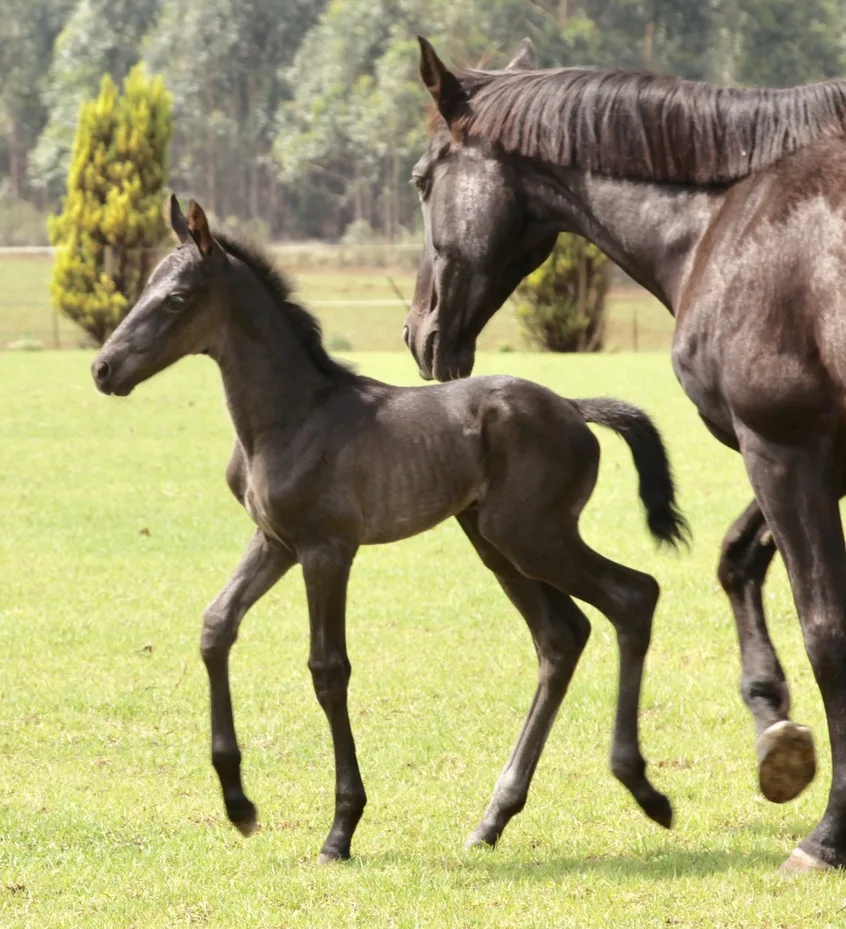
Nutrition and Care for the Foal
Ensuring proper nutrition and healthcare for the foal and its mother is crucial for their well-being during the early stages of life. Proper nutrition sets the stage for healthy growth and development, while a well-implemented healthcare schedule safeguards against common illnesses. Let’s delve into the key aspects of nutrition and care:
Ensuring proper nutrition for the mare and foal
- Importance of high-quality forage and concentrates:
- Forage quality: Provide the mare with access to high-quality forage throughout her pregnancy and during lactation. Adequate fiber is essential for digestive health.
- Balanced concentrates: Supplement the mare’s diet with concentrates formulated specifically for pregnant and lactating mares. Ensure that the feed provides essential nutrients, including vitamins and minerals.
- Monitoring the mare’s health and postpartum care:
- Body condition scoring: Regularly assess the mare’s body condition to ensure she maintains a healthy weight. Adjust the diet accordingly to meet her nutritional needs.
- Postpartum care: Provide the mare with a clean, comfortable environment. Monitor her for any signs of complications, such as retained placenta or uterine infections, and seek veterinary assistance if necessary.
Implementing a vaccination and deworming schedule
- Age-appropriate vaccinations:
- Colostrum intake: Ensure that the foal receives sufficient colostrum, as it contains antibodies essential for immunity. Vaccinate the mare appropriately during pregnancy to pass on immunity to the foal.
- Early vaccinations: Administer age-appropriate vaccinations to the foal, focusing on protection against common diseases such as tetanus, influenza, and rhinopneumonitis. Consult with a veterinarian to develop a vaccination schedule tailored to your region’s specific risks.
- Safely deworming the foal:
- First deworming: Begin deworming the foal at around 2-3 months of age, following your veterinarian’s recommendations. Use a dewormer specifically designed for foals and adjust the dosage based on weight.
- Regular fecal examinations: Conduct regular fecal examinations to monitor parasite load and tailor the deworming protocol accordingly. This helps prevent resistance and ensures effective parasite control.
Proactive nutrition and healthcare contribute significantly to the foal’s overall health and development. Regular consultations with a veterinarian are essential to tailor feeding and healthcare plans to the specific needs of the mare and foal. By providing a well-balanced diet, monitoring the mare’s health, and following a comprehensive vaccination and deworming schedule, horse owners can create a foundation for a healthy and thriving foal.
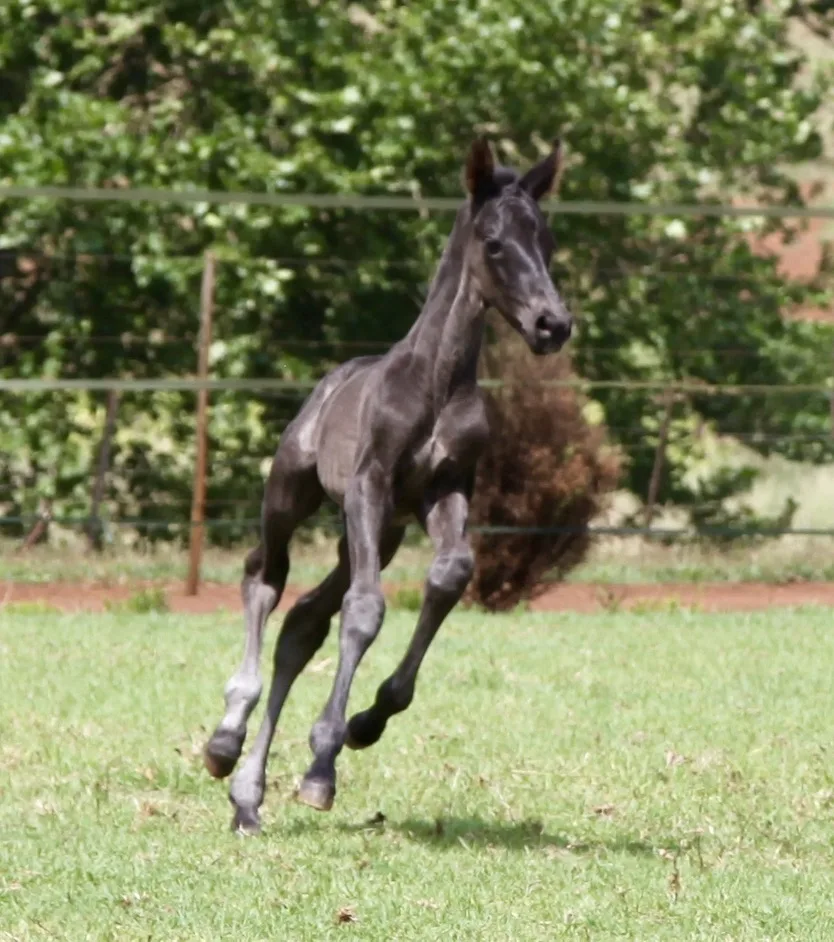
Monitoring Health and Development
Keeping a close eye on the health and development of the foal is essential during its early weeks of life. Regular health checks and monitoring of developmental milestones allow horse owners to detect potential issues early on and ensure the foal is thriving. Let’s explore the key aspects of monitoring health and development:
Conducting regular health checks
- Observing vital signs:
- Temperature: Regularly check the foal’s temperature using a rectal thermometer. A normal temperature for a foal ranges between 99.5°F to 102.1°F (37.5°C to 38.9°C).
- Heart rate: Monitor the foal’s heart rate by placing a hand or stethoscope over the chest. A normal heart rate for a foal is around 80-120 beats per minute.
- Respiratory rate: Observe the foal’s breathing rate, which should be around 20-40 breaths per minute.
- Identifying signs of illness or distress:
- Alertness and behavior: A healthy foal is generally alert, curious, and responsive. Changes in behavior such as lethargy, depression, or excessive sleepiness may indicate a health concern.
- Appetite and nursing: Monitor the foal’s appetite and nursing behavior. A sudden decrease in interest in nursing or changes in fecal consistency could be signs of digestive issues.
- Umbilical stump: Check the umbilical stump for signs of infection, such as swelling, redness, or discharge. Keep the area clean and apply an antiseptic if necessary.
Tracking developmental milestones
- Growth and weight monitoring:
- Weighing the foal: Regularly weigh the foal to ensure appropriate growth. Most foals should gain about 2-4 pounds per day during the first few weeks.
- Body condition scoring: Assess the foal’s body condition regularly. An appropriate body condition indicates proper nutrition and overall health.
- Assessing movement and coordination:
- Standing and walking: Monitor the foal’s ability to stand and walk within a few hours of birth. Encourage and support its attempts to stand, ensuring that it gains strength in its limbs.
- Joint flexibility: Observe the foal’s joint flexibility and coordination. Ensure that it can move all limbs freely without signs of stiffness or lameness.
- Play and social interactions: Normal play behavior is crucial for muscle development and socialization. Ensure the foal engages in playful activities and interacts positively with its mother and, if applicable, other foals.
- Regular health checks and developmental assessments should be conducted as part of a routine care schedule. If any concerns or abnormalities are identified during these checks, it is crucial to seek veterinary advice promptly. Early intervention can often prevent the escalation of health issues and contribute to the overall well-being of the foal during its formative weeks.
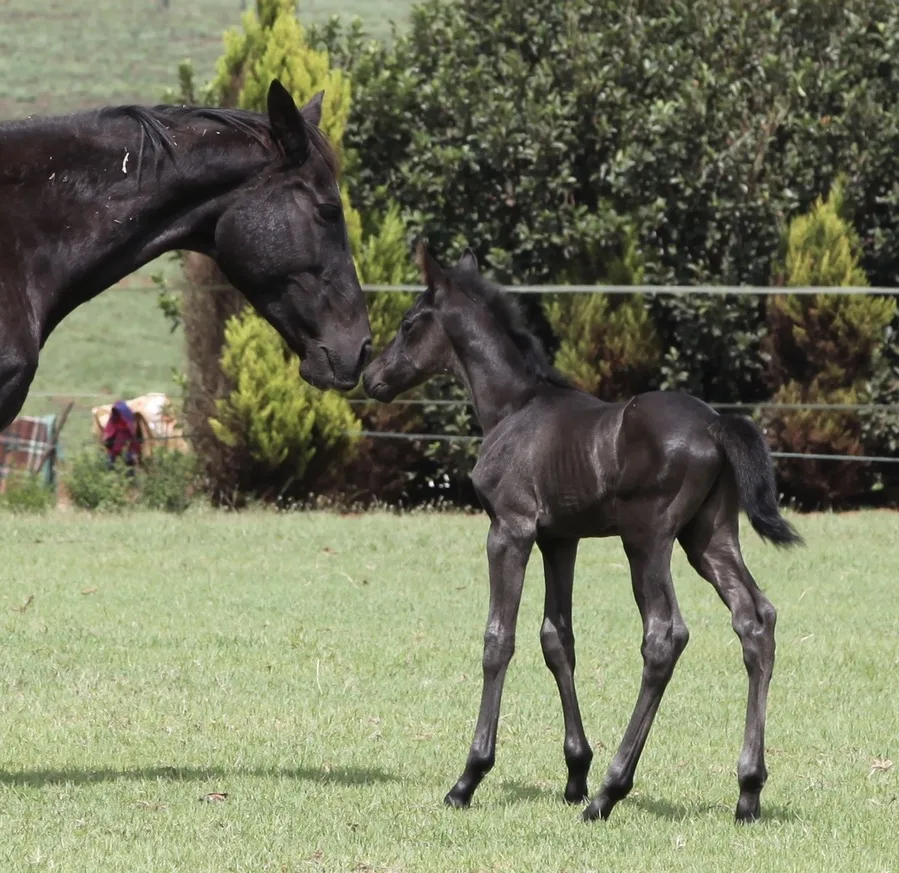
Shelter and Outdoor Time
Ensuring the foal has a safe and comfortable environment is paramount to its well-being. Proper shelter and controlled outdoor time contribute to the foal’s physical and mental development. Let’s delve into the key considerations for providing shelter and introducing the foal to outdoor activities:
Providing appropriate shelter for the foal
- Shelter design considerations:
- Size and layout: Ensure the shelter is appropriately sized to accommodate the mare and foal comfortably. Consider a layout that allows easy access and egress, preventing potential injuries.
- Ventilation: Proper ventilation is crucial for air quality. Adequate ventilation prevents the buildup of ammonia and ensures a healthy environment for the foal’s respiratory system.
- Bedding: Provide clean and comfortable bedding to offer insulation against the cold and a soft surface for the foal to lie down.
- Protecting against adverse weather conditions:
- Temperature control: Ensure the shelter protects against extreme temperatures. During colder months, consider using heat lamps or blankets if necessary, and provide shade during hot weather.
- Windbreaks: Position the shelter to act as a windbreak, reducing the impact of cold winds on the mare and foal.
- Rain protection: Ensure the shelter has a roof or overhang to protect against rain. Wet and cold conditions can be detrimental to the foal’s health.
Gradual introduction to the outdoors
- Safe turnout practices:
- Timing of introduction: Introduce the foal to outdoor spaces gradually, typically after the first week or two. This allows time for the foal to strengthen its limbs and gain confidence.
- Secure fencing: Ensure that the turnout area is securely fenced to prevent escapes and protect the foal from potential dangers. Check for any gaps or loose components in the fencing.
- Supervised turnout: Initially, supervise the foal during outdoor time to monitor its behavior and interactions with the environment.
- Monitoring social interactions with other horses:
- Introducing gradually: If there are other horses in the turnout area, introduce the foal to them gradually. Monitor social interactions to ensure a positive and safe introduction.
- Observing herd dynamics: Watch for signs of aggression or bullying from other horses. The foal should be allowed to integrate into the herd at its own pace, under close supervision.
- Separation if necessary: If conflicts arise, be prepared to separate the foal temporarily until it becomes more confident and establishes its place within the herd.
Providing a safe and well-designed shelter, along with controlled outdoor time, allows the foal to develop physically and socially. By considering the shelter’s design, protecting against adverse weather conditions, and carefully managing the foal’s introduction to the outdoors, horse owners can create an environment that promotes the foal’s overall health and well-being.

Conclusion
The first few weeks in a foal’s life are a critical period that significantly shapes its overall health, behavior, and future development. Reflecting on the journey from birth to the initial weeks provides insights into the unique challenges and joys of nurturing a foal. Let’s summarize the importance of this period and reiterate key tips for ensuring the foal’s safety and happiness:
Reflecting on the importance of the first few weeks in a foal’s life:
- Foundation for future well-being: The early weeks lay the foundation for the foal’s physical and mental well-being. Proper care during this period contributes to a healthy, well-adjusted, and confident horse in the future.
- Critical developmental milestones: From bonding with the mare to taking those first wobbly steps, the first few weeks mark a time of rapid growth and development. Attentiveness during this period can address potential issues early on and set the stage for a flourishing equine companion.
- Establishing trust and confidence: Building a strong bond between the foal and its human caregivers is crucial for long-term relationships. Gentle handling, positive reinforcement, and careful observation contribute to a foal that is trusting, confident, and responsive.
Reiterating key tips for keeping the foal safe and happy during this critical period:
- Create a safe foaling environment: Choose a suitable foaling area, provide proper bedding, and assemble a well-stocked foaling kit to ensure a secure and comfortable environment for both the mare and foal.
- Monitor health and development: Regularly check vital signs, observe for signs of illness or distress, and track developmental milestones. Early detection of issues allows for prompt intervention and ensures the foal is thriving.
- Focus on nutrition: Provide the mare with high-quality forage and concentrates during pregnancy and lactation. Implement a vaccination and deworming schedule for both the mare and foal to protect against common diseases.
- Encourage bonding and socialization: Facilitate natural behaviors between the mare and foal, and introduce the foal to human contact through gentle handling techniques. This promotes a strong bond and positive socialization experiences.
- Provide appropriate shelter and outdoor time: Design a shelter that meets the foal’s needs, protects against adverse weather conditions, and gradually introduce the foal to outdoor environments. Ensure safe turnout practices and monitor social interactions with other horses.
In conclusion, the early weeks of a foal’s life are a time of excitement, challenges, and immense growth. By remaining attentive to the foal’s needs, implementing best practices in nutrition and healthcare, and fostering positive interactions, horse owners can ensure that their foals embark on a journey to a healthy and fulfilling life.
care of the Newborn Foal
Foals nurse frequently during the first few weeks of birth. Estimates range from one to two times per hour, with each session lasting about …
Foal Care
Deworming The Foal … Young foals are generally more susceptible to parasites than adult horses. Exposure begins early. The major gastrointestinal parasite of …
A Sensible Start: Feeding Young Horses from Foaling to …
… young, growing horses. Topics: Article, Feeding Foals and Young Horses, Foal Care and Problems, Hay, Nutrition, Supplements, Vitamins & Minerals, Weaning. Share.
